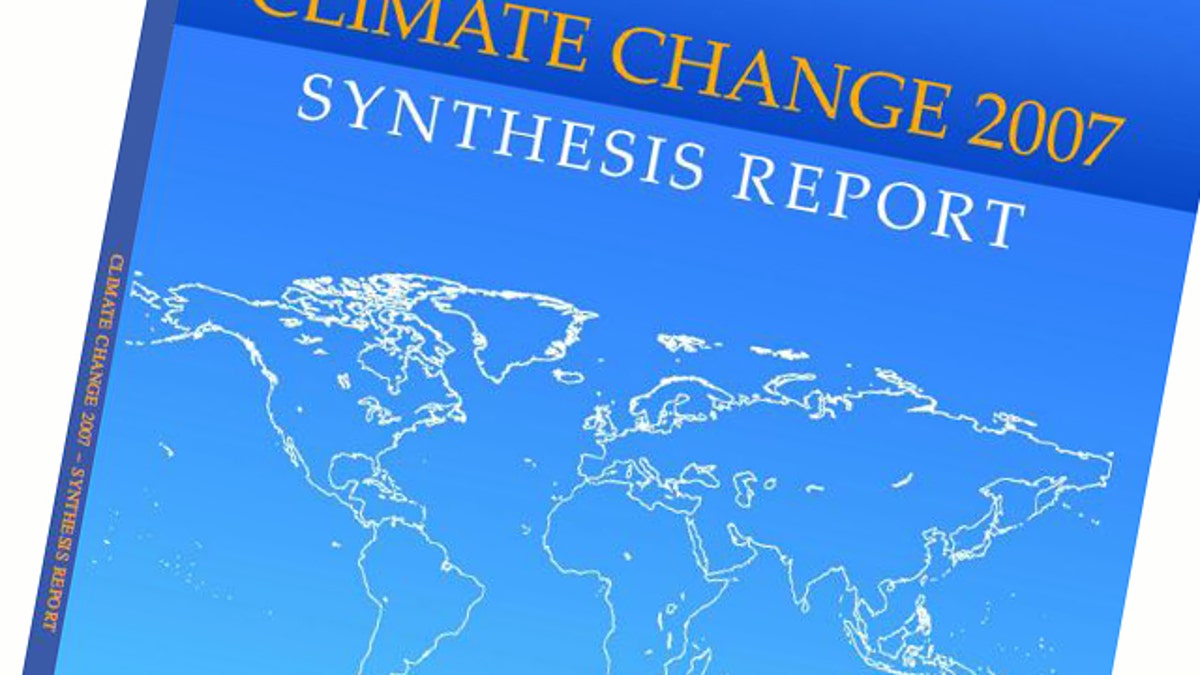
The cover of the IPCC's fourth assessment report to the U.N., "Climate Change 2007: Synthesis Report," more frequently referred to as AR4. (Intergovernmental Panel on Climate Change (IPCC))
British climate scientists at the center of the scandal over stolen e-mails acted with integrity and made no attempt to manipulate their research on global temperatures, an external inquiry has found. But the U.N.? That's another story.
The scientific research into historical temperature records was misrepresented by the United Nation's Intergovernmental Panel on Climate Change (IPCC), which failed to consider uncertainties the scientists had reported concerning the raw temperature data.
The inquiry panel of leading scientists, nominated by the Royal Society, said that the University of East Anglia's Climatic Research Unit may not have used the best methods for analyzing temperature records. The Unit also failed to store its data and keep full records of exactly what it had done, preventing other scientists from checking all its findings.
But after interviewing the unit's scientists and studying 11 of their reports, the panel concluded: "We found them to be objective and dispassionate in their view of the data and their results, and there was no hint of tailoring results to a particular agenda.
“Their sole aim was to establish as robust a record of temperatures in recent centuries as possible."
Professor Phil Jones has stood down from his post as director of the unit while investigations take place into issues raised by a thousand e-mails he sent or received. A separate inquiry, chaired by Sir Muir Russell, is continuing into the contents of the e-mails and apparent attempts by Professor Jones to suppress data.
His research underpins the claim made by the IPCC that it is highly likely that rising temperatures since the mid-20th century have been caused by human activities. The panel was not asked to consider whether the unit's findings were correct but to judge whether the scientists had conducted their research in an honest and robust manner.
The panel said it was "regrettable" that the IPCC, in its advice to governments on climate change, had failed to reflect uncertainties that had been clearly stated in the unit's reports.
"Recent public discussion of climate change and summaries and popularization of the work of CRU and others often contain oversimplifications that omit serious discussion of uncertainties emphasized by the original authors."
For more on this issue, see the full story at The Times of London.
